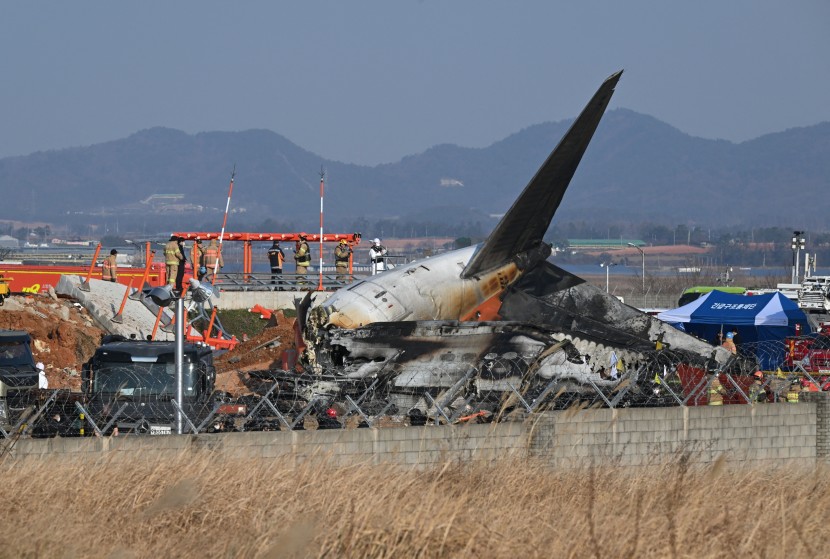
South Korean authorities have submitted a preliminary report on last month's Jeju Air crash to the UN aviation agency and officials in the US, France, and Thailand, an official said Monday.
The investigation, focused on the role of a "bird strike" and the analysis of the engines and the localizer landing guidance system, is ongoing. The crash remains the deadliest air disaster on South Korean soil.
"These all-out investigation activities aim to determine the accurate cause of the accident," it said.
The International Civil Aviation Organization (ICAO) mandates a preliminary report within 30 days of an accident and encourages a final report within 12 months.
On Dec. 29, a Boeing 737-800 jet from Bangkok bound for Muan International Airport overshot the runway during an emergency belly landing, crashing into the localizer structure. The accident claimed 179 lives out of the 181 passengers and crew on board.
Experts suggest that the localizer, a critical navigation aid for runway approaches, and its reinforced concrete and earth support structure at Muan Airport likely contributed to the tragedy.
The report detailed initial findings from South Korean investigators shared with victims' families on Saturday, including the pilots noting a flock of birds spotted during the plane's final approach.
The accident report noted that while the exact timing of the bird strike reported by the pilots remains unconfirmed, the aircraft "declared an emergency for a bird strike during a go-around."
"Both engines were examined, and feathers and bird blood stains were found on each," it said.
"After the crash into the embankment, fire and a partial explosion occurred. Both engines were buried in the embankment's soil mound, and the fore fuselage scattered up to 30-200 meters from the embankment," it said.
However, the reason for the two data recorders to stop recording simultaneously just before the pilots declared mayday was not mentioned in the report.








